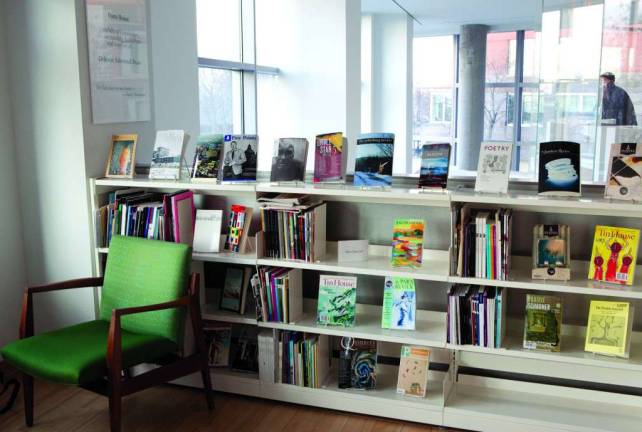A Place for Poetry

Upstairs is home to the true stars of Poets House - over 60,000 poetry books. The collection includes editions, anthologies and chapbooks from every poetic genre and era imaginable. Admission is free, and readers are welcome to bring coffee, lunch and laptops and sit for a few minutes or a few hours.
"Poets House is very widely known among some people who really care about poetry," said managing director Jane Preston. "Moving to this space with its street-level presence and its beautiful view [helps with exposure]. And one of the ways we really get the word out is by doing all sorts of programs."
That includes outreach to schools, teaching poetry to kids, as well as programs that highlight lesser-known poets, like the current project Poetic Voices of the Muslim World. Preston explained that their mission is to create a home for poetry and poetry readers, but also to broaden public access to the art form. The building is designed to provide a welcoming atmosphere and open access to the stacks, and they are continually asking how they can reach more people with poetry.
"How do we help people gain access to this secret treasure that they have, which is their language, and the freedom to use it artistically, to express and experience stuff that they're never going to get on TV," she said. "Helping people gain access to that thing which is their birthright is core to all the literary organizations. And by doing that we are helping people to understand and enjoy poetry."